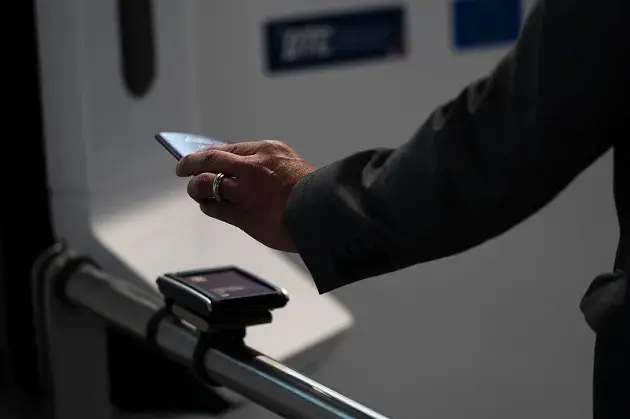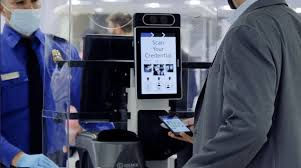Major Changes Afoot
- G. Rhodes

- Jun 21, 2025
- 4 min read
Updated: Jun 28, 2025

Two vital traveling essentials may eventually become obsolete. The International Civil Aviation Organization (ICAO), a specialized air transport agency of the United Nations, has announced a sweeping overhaul of global air travel procedures through the introduction of a Digital Travel Credential (DTC) System. Described as the most significant transformation in aviation in over 50 years, the initiative aims to replace traditional boarding passes and check-in protocols with biometric and digital identity technology to create a seamless, paperless travel experience. The DTC will enable travelers to store passport data securely on their smartphones, generating a digital “journey pass” that updates automatically with itinerary changes. This credential will allow passengers to move through key checkpoints, such as baggage drop, security, and boarding, via facial recognition without presenting physical documents or checking in manually.

A pilot program to trial a Digital Travel Credential for Finnair passengers has yielded positive results. Ninety-one percent of participants reported finding it easy to set up their DTC, 96 percent said it was easy to send their DTC to travel and border authorities ahead of their flight, and 90 percent said they would use it again when traveling in the future.The pilot got underway in August of last year. Participating passengers were required to look at a camera and place their passport on a designated reader device, with their biometric and passport information matched to their pre-registered digital credentials. In January, the pilot was expanded to include departures and arrivals via 22 Finnair destinations, allowing more passengers to experience the benefits of the DTC system. However, the pilot program also encountered technical issues such as inconsistent camera recognition and network glitches, underscoring the need for robust infrastructure and further testing ahead of full deployment. By the end of March, the Finnish Border Guard concluded the pilot. A total of 466 individuals volunteered, resulting in 355 successfully processed DTC border checks, with each check taking an average of just eight seconds.

The new framework categorizes DTCs into three types. Type 1 credentials are derived directly from an existing physical passport, making them easier to implement. Type 2 and Type 3 credentials aim to eliminate the need for physical documents entirely, representing a longer-term vision that requires widespread legal, technological, and operational readiness. ICAO expects a global rollout of the DTC system within the next two to three years, with full adoption anticipated by 2028. Major international airports are poised to lead the transition, though smaller airports may require longer timelines to upgrade infrastructure. Implementation will require facial recognition cameras, mobile document readers, and real-time data synchronization systems to be installed at key checkpoints.

While the initiative has been widely praised for its potential to improve convenience and security, it also faces significant challenges. Interoperability across different countries, carriers, and airport systems remains a complex hurdle. Digital rights organizations have also raised concerns about the use of facial recognition, potential surveillance, and the risk of exclusion for those without compatible technology or identification documents. Groups such as European Digital Rights (EDRi) warn that biometric systems may reinforce inequality or introduce new privacy vulnerabilities if not carefully regulated. The EDRi network is composed of over 45 non-governmental organizations, experts, advocates, and academics, all dedicated to defending digital rights across Europe. They may yet prove to be a formidable stumbling block towards adoption of this new ICAO proposal.

ICAO’s proposition also envisions broader use cases for the Digital Travel Credentials beyond air travel, including identity verification for hotels, car rentals, and other services. This could eventually extend into adjacent sectors such as banking or public services, all of which raise additional questions about governance, consent, and data protection. Critics further note that widespread DTC adoption will require significant investment and international legal harmonization. ICAO is currently working on building a shared legal and regulatory framework to support cross-border identity validation while protecting traveler rights.

Early adoption efforts by companies like IDEMIA, whose mobile travel credential system debuted in 2020, demonstrate that the technology is viable, but global scaling will depend on political alignment, public trust, and technological readiness. Some self-sovereign identity models are also being explored, giving travelers greater control over how and when their data is shared. The International Civil Aviation Organization’s goal is a frictionless, connected travel experience that delivers real-time updates on flights and connections while integrating with hotels, ground transportation, and loyalty services. However, experts caution that infrastructure gaps, legal ambiguities, and social acceptance must be addressed before the vision of a borderless digital identity can be realized.

To address privacy concerns, ICAO has pledged that biometric data collected during airport verification will be automatically erased within 15 seconds of use. This privacy-by-design approach aligns with emerging biometric security standards and reflects a broader shift toward anonymized, consent-based identity systems, such as the patented privacy-preserving multi-biometric platform from TECH5. This Swiss technology company, has been granted a US patent for its next-generation digital ID verification system, marking a major step forward in privacy-preserving identity technology.
“The last upgrade of great scale was the adoption of e-ticketing in the early 2000s,” said Valérie Viale, Director of Product Management at Amadeus, the world’s leading provider of travel technology that focuses on developing software solutions for airlines, hotels, travel agencies and other travel-related businesses. “The industry has now decided it’s time to upgrade to modern systems that are more like what Amazon would use.” We'll have to wait and see how it all plays out
Until next time…safe travels.



Comments